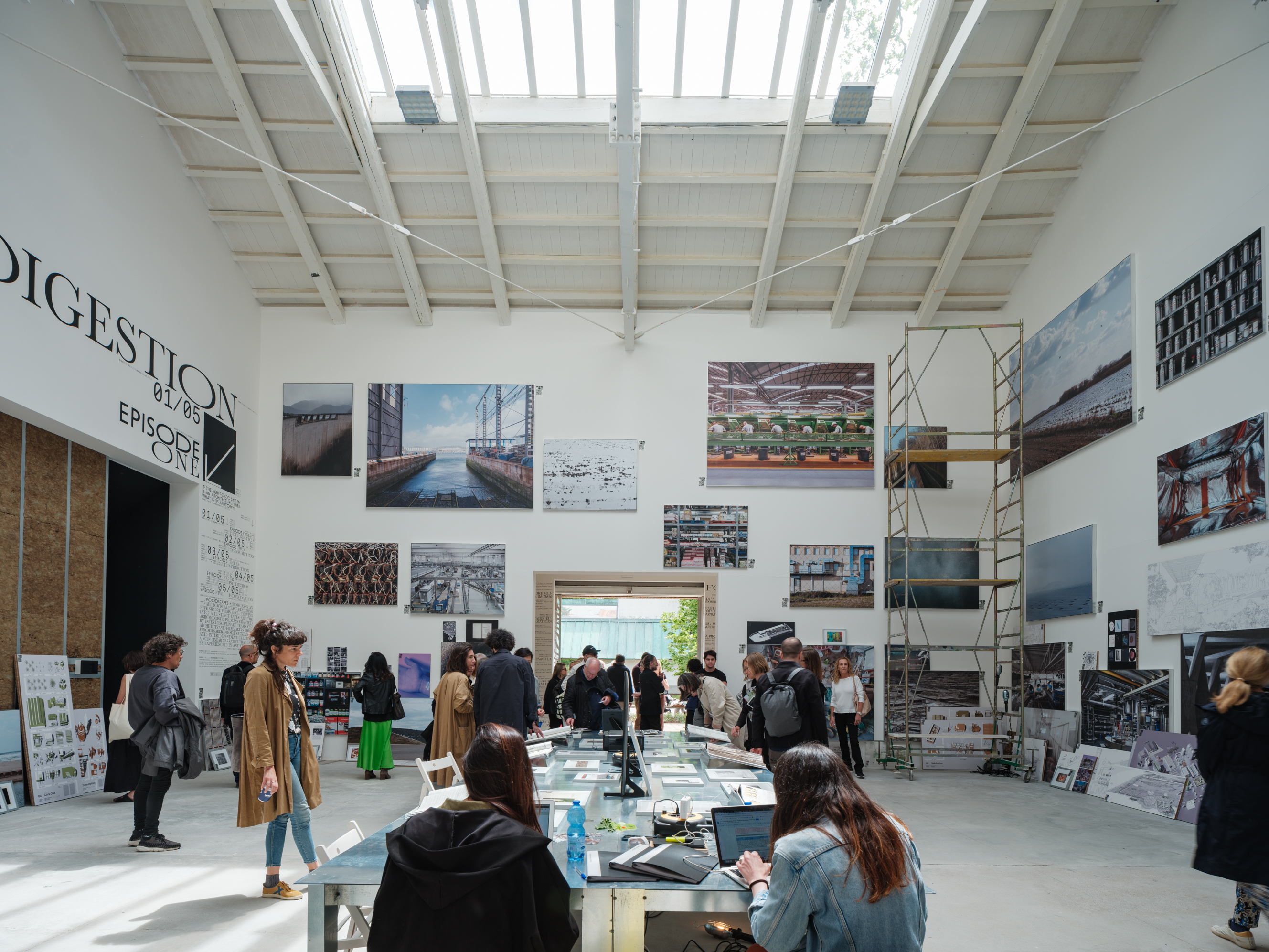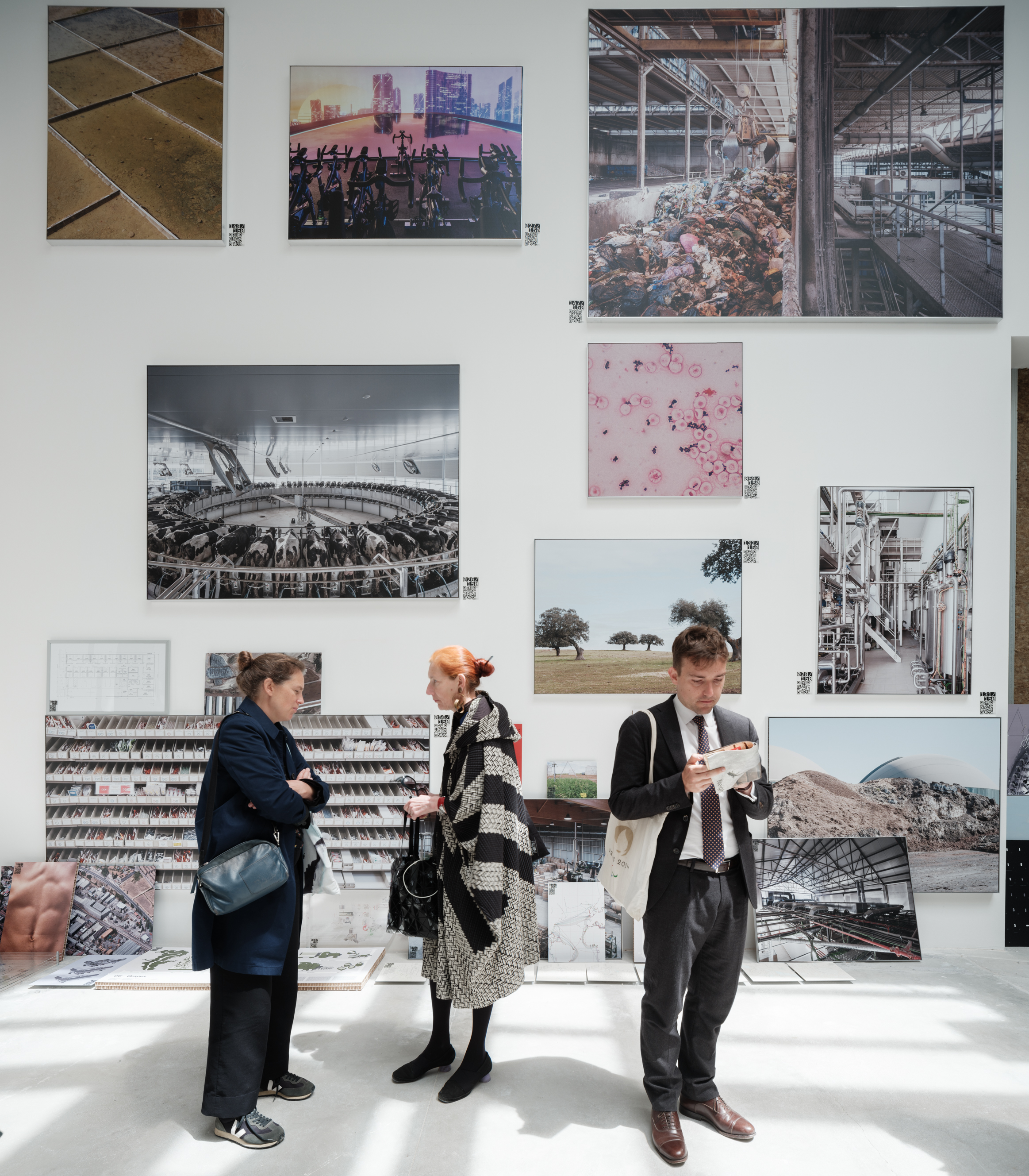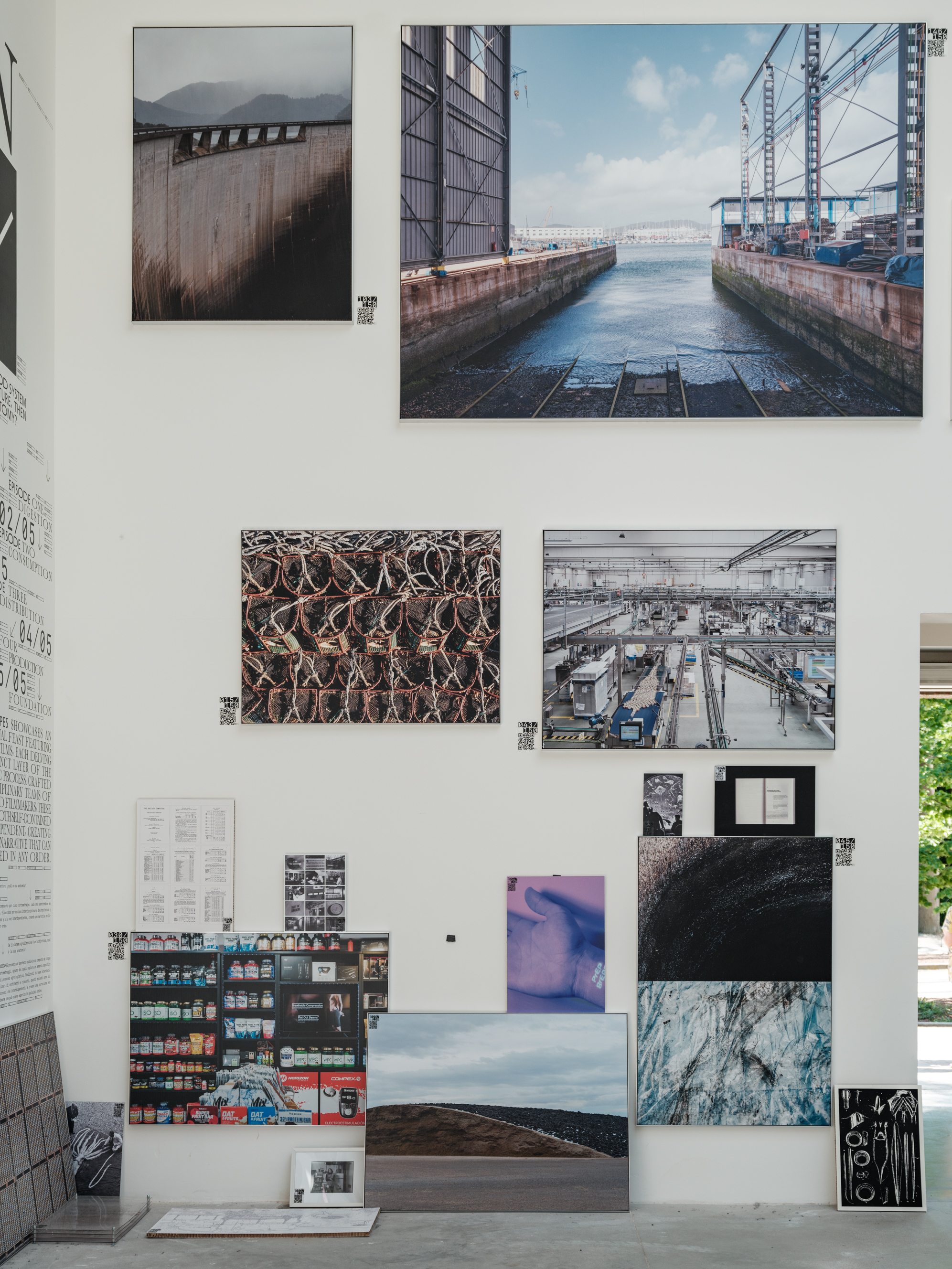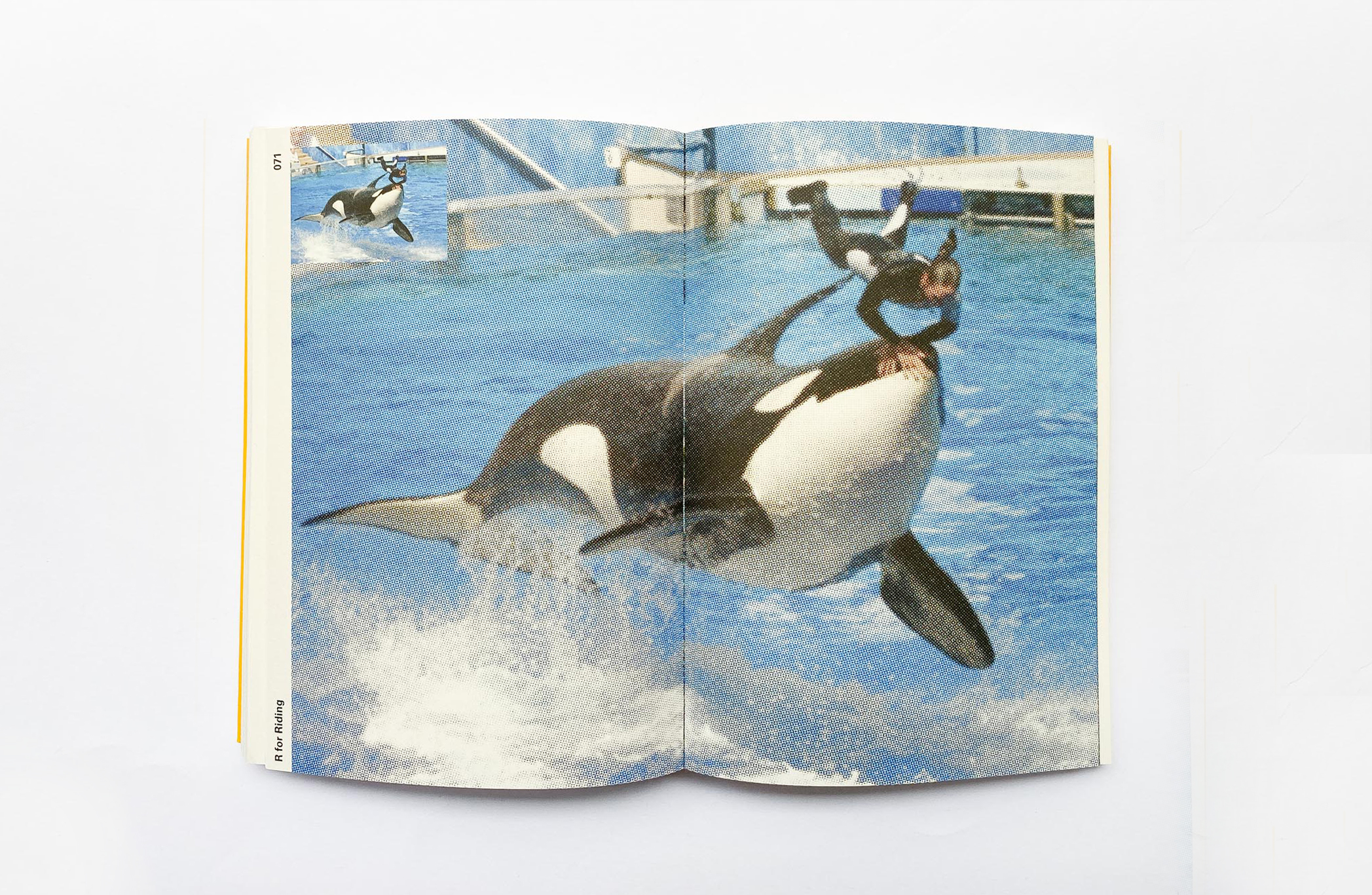FOODSCAPES: VENICE ARCHITECTURE BIENNALE
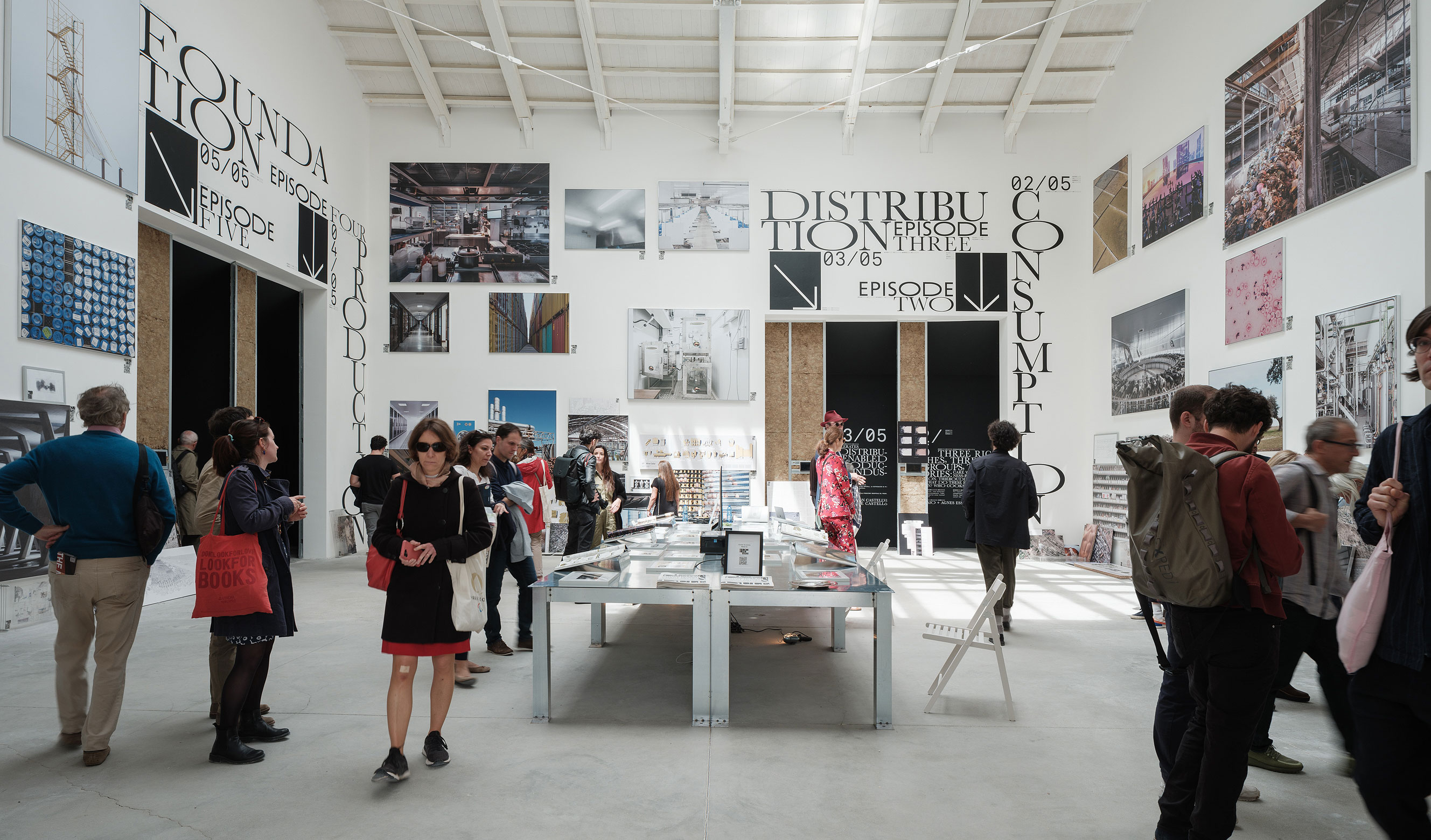
General Info
- Location
-
Spanish Pavilion — Architecture Bienale, Venice
- Date
-
20/05/2023 – 26/11/2023
- Typology
-
Exhibition
- Curated by
-
Eduardo Castillo-Vinuesa y Manuel Ocaña.
Foodscapes
Every time we eat, we connect our palate to a vast web of distant geographies: supermarkets, greenhouses, farms, warehouses, logistical networks, cold chains, landfills. Despite their fundamental role in sustaining life, these everyday architectures of food production and distribution often remain overlooked. Yet in a world where the molecular has become tectonic—where every bite reverberates across ecosystems—the urgent redesign of our food systems demands not only attention but imagination. Eating, quite literally, is a way of digesting territories.
FOODSCAPES invites us on a journey through the architectures that feed the world: from the intimate laboratories of our kitchens to the expansive operational landscapes that nourish our cities. Through five short films, a documentary archive structured like an experimental cookbook, and a collaborative research platform, FOODSCAPES explores the agro-architectural context of Spain—Europe’s agricultural powerhouse—to examine global issues. The exhibition reflects on the past and present of food infrastructures, while envisioning future models capable of nourishing the world without exhausting the planet.
Within this broader conversation, the Institute for Postnatural Studies presents From Flesh to Data: Non‑Human Intelligence and Artificial Stupidity, a research project that uses the traditional polbo á feira recipe as a tentacular lens to explore complex more-than-human entanglements. Focusing on the emergence of octopus aquaculture and the digital infrastructures that enable it, the project challenges anthropocentric ideas of intelligence and highlights the “artificial stupidity” embedded in automated systems and data-driven efficiencies.
From Flesh To Data
As marine farms and submerged technologies transform oceanic territories, the work asks: How might non-human intelligences perceive and respond to these artificial environments? What new interspecies cultures could emerge when the tentacular meets the technological? And crucially, to what extent can a cultural tradition remain sustainable when it harms a sentient species and disrupts its ecosystem? Where do we draw the line between the wild and the artificial—and what futures are we preparing to swallow?
Credits
- With works by
-
Uriel Fogué, Carlos Palacios, Eva Gil, María Jerez, María Charneco, Alfredo Lérida, Guillermo López, Anna Puigjaner, Agnes Essonti Luque, NKL Fleiva, Megane Mercury, Plataforma Aprofitem els Aliments PAA, Sindihogar/Sindillar, Cooperativa Abarka, Gerard Ortín Castellví, Pol Esteve Castelló, Marina Otero Verzier, Manuel Correa, Amaia Sánchez-Velasco, Jorge Valiente Oriol, Francisco Lobo, Romea MuryN, Daniel Ibañez, Vicente Guallart, Manuel Bouzas, Lucia Jalón, Federico Soriano, Dolores Palacios, Iñaki Alday, Margarita Jover, Igor Bragado, Miles Gertler, Institute for Postnatural Studies, Guillermo Fernández-Abascal, Urtzi Grau, Ivan L. Munuera, Pablo Saiz del Rio, Vivian Rotie, Lucia Tahan, Nerea Calvillo (C+ arquitectas), María Buey González (C+ arquitectas), and Manuel Alba Montes (C+ arquitectas)
- Commissioned by
-
Government of Spain through the Directorate-General for Urban Agenda and Architecture of the Ministry of Housing and Urban Agenda (MIVAU), Acción Cultural Española (AC/E), and the Spanish Agency for International Development Cooperation (AECID)
- Project Managers
-
Ana Ara, Paula Eslava
- Consultants
-
Black Almanac (Philip Maughan and Andrea Provenzano)
- Visual Identity
- Photos
-
Pedro Pegenaute
